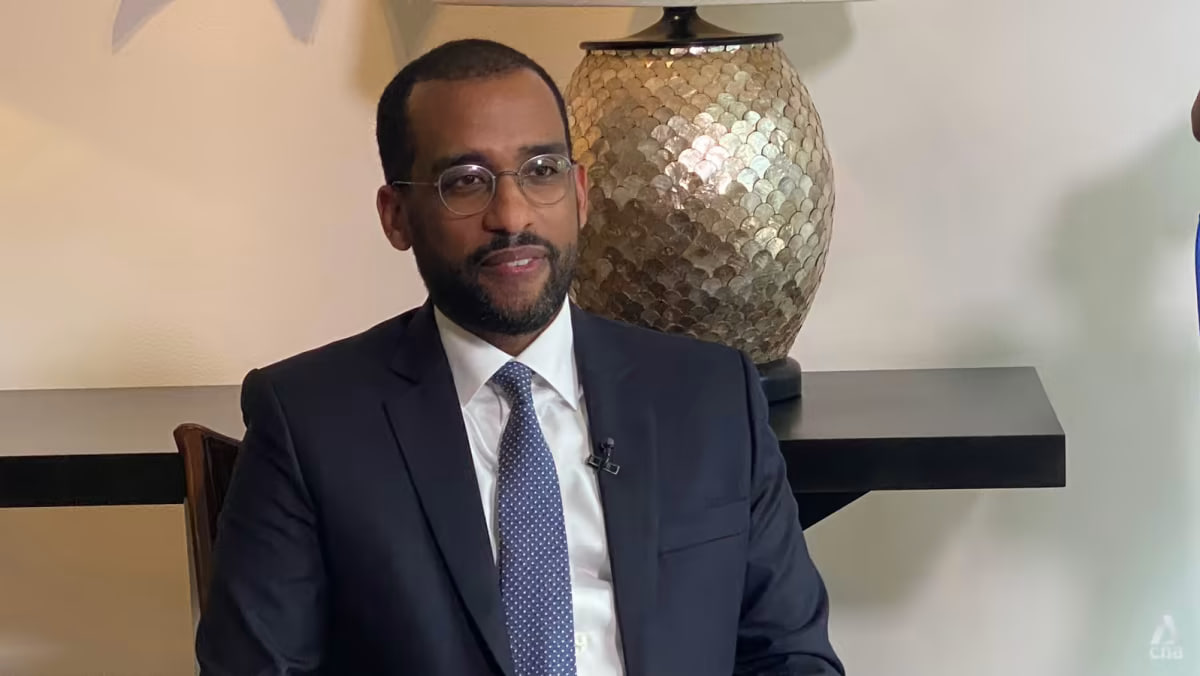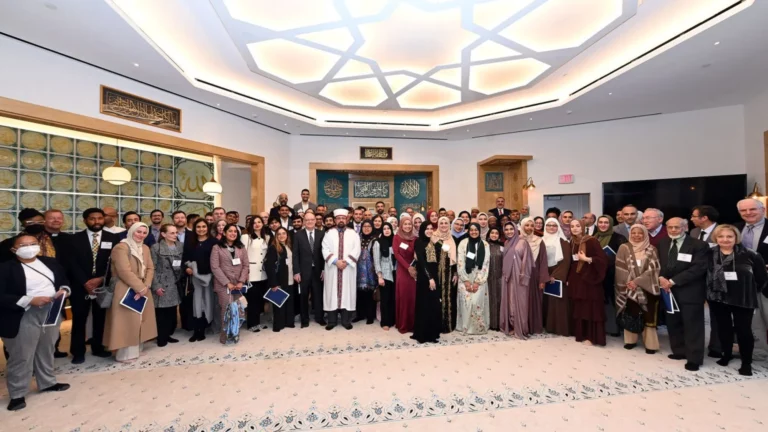US President Joe Biden had said ASEAN is “the heart” of his administration’s Indo-Pacific strategy.
JAKARTA: The United States wants to deepen its relations with the Association of Southeast Asian Nations (ASEAN), which is “absolutely critical” to its push for greater Indo-Pacific presence, said US Ambassador to ASEAN Yohannes Abraham.
“Fundamentally, we think that prosperous, resilient and independent ASEAN is good for all of us. And so we want and we believe deeply in ASEAN centrality,” said Mr Abraham in an exclusive interview with CNA on May 3 at the Ambassador’s residence in Jakarta.
“So we want to work with and through ASEAN to find opportunities to collaborate on the issues that matter to our combined 1 billion people.”
This would involve various parts of the US government engaging with their ASEAN counterparts across areas such as health and energy, he noted.
“So that way, they can find solutions to challenges that we all collectively face and also find ways in which we can tackle the opportunities that present themselves for all of us. And importantly, that engagement from our view should start at the top.”
ASEAN AT THE HEART OF US’ INDO-PACIFIC STRATEGY
US President Joe Biden had said ASEAN is “the heart” of his administration’s Indo-Pacific strategy.
“Southeast Asia is absolutely critical to the US Indo-Pacific strategy,” said Mr Abraham of the region’s importance.
“We think ASEAN has an incredibly important role to play in the regional architecture and we think that when ASEAN is prosperous and independent, we’re all better off. The region’s better off, the world is better off.”
Mr Abraham, who was sworn in as US envoy to ASEAN in September last year, said being committed to ASEAN centrality means working closely with and through the bloc on a range of key issues, whether they are challenges or opportunities, and showing itself “to be a reliable and durable partner”.
These include ensuring public health security and addressing the impact of climate change, which some Southeast Asian countries are particularly susceptible to.
“And as we do so, we have to do what we can to continue to see this as a region of growth and see to the prosperity of our people,” said Mr Abraham, a former chief of staff of the National Security Council.
“I don’t think it would be responsible to say there’s a singular challenge that we’re focused on, because there’s any number of them that we’re all better off on if we work together.”
On the economic front, the US has, over the course of years, worked very closely with the grouping on the ASEAN Single Window, a platform that allows for the lowering of non-tariff barriers for trading within ASEAN.
“We’ve put a lot of time, resources and expertise into this,” said Mr Abraham, adding that the initiative has helped companies doing business within ASEAN to save billions of dollars.
“We think that is good for ASEAN. We think it’s good for ASEAN connectivity, we think it’s good for ASEAN economic growth. And fundamentally, we think those things are good for us and for the region.”
INDONESIA HAS IMPORTANT VOICE ON GLOBAL STAGE
When asked how Washington’s approach to ASEAN comes into play with regards to China, Mr Abraham stressed that “our excitement about ASEAN or our investment in ASEAN is because this is an incredibly important region that we are excited about for its own sake”. This comes as leaders from the regional grouping will be meeting in Indonesia’s Labuan Bajo, a town on the western tip of Flores island, for the 42nd ASEAN Summit from Tuesday to Thursday.
Indonesia, which is the currently rotating chair of the bloc, has a significant role to play on the international stage.
“Indonesia is a very, very important voice globally. We saw that at the G20 last year where Indonesian leadership was on full display for the world,” said Mr Abraham, adding that the US hopes to support the country’s efforts to continue ASEAN’s growth story.
“That’s certainly true in the region and it’s certainly true in ASEAN.”
Touching on Myanmar, Mr Abraham, who served in several White House roles during the Obama-Biden Administration, said Washington supports the implementation of the Five-Point Consensus that was agreed between ASEAN and Myanmar’s junta in April 2021.
This agreement includes an immediate cessation of violence in Myanmar and commencing constructive dialogue among all parties concerned to seek a peaceful solution.
“Our sense is that Indonesia takes this issue very seriously. So we will be looking at ways and we’ll stay in constant dialogue with Indonesia,” said Mr Abraham, recognising the steps ASEAN has taken to deny Myanmar’s military regime a seat at certain meetings.
“We’ll be looking for ways in which we can work with Indonesia and the rest of ASEAN to continue to address the crisis.”
Source: Channel News Asia







